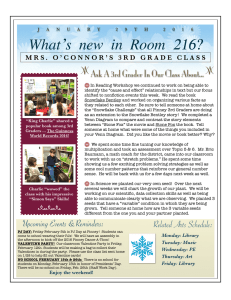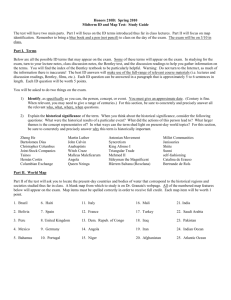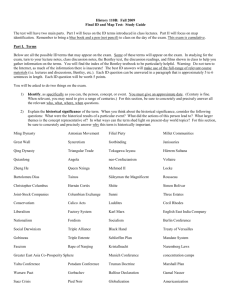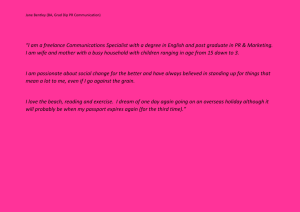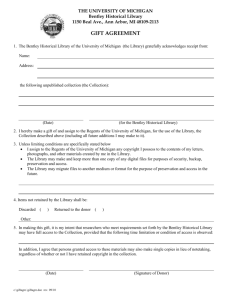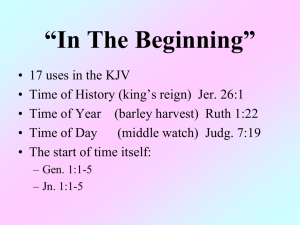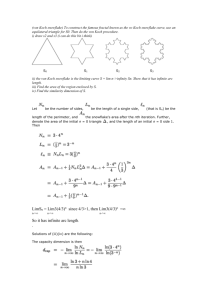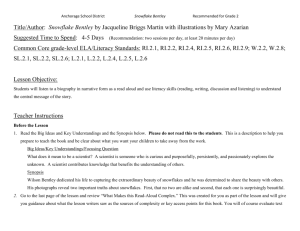"Real" Story - theroades.com
advertisement
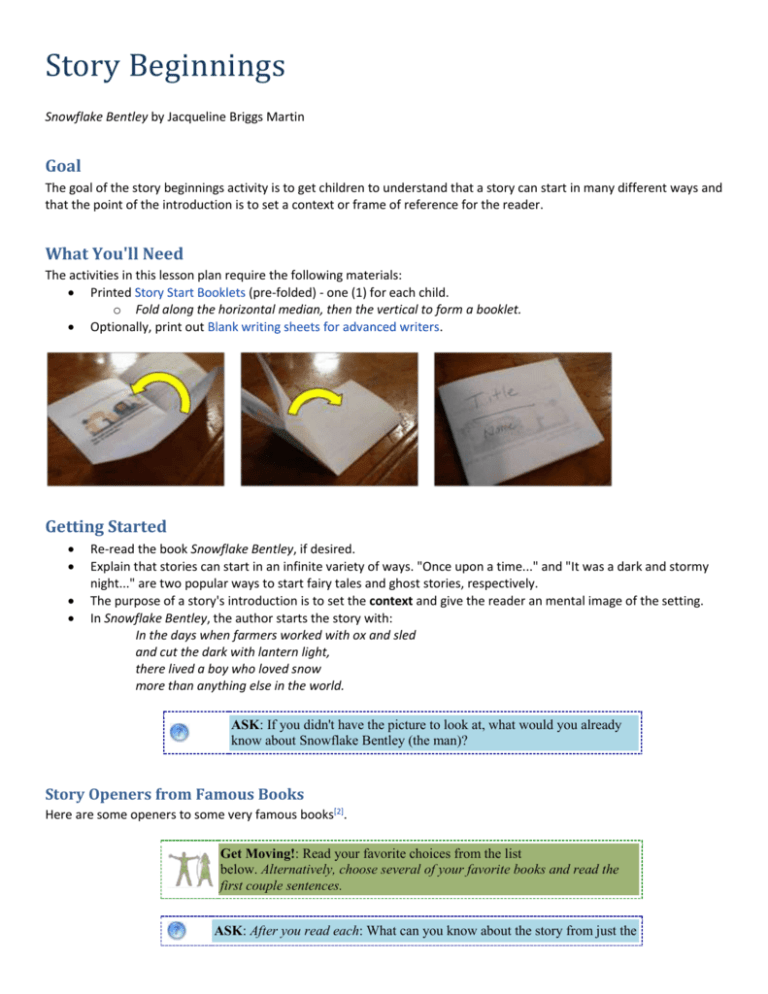
Story Beginnings Snowflake Bentley by Jacqueline Briggs Martin Goal The goal of the story beginnings activity is to get children to understand that a story can start in many different ways and that the point of the introduction is to set a context or frame of reference for the reader. What You'll Need The activities in this lesson plan require the following materials: Printed Story Start Booklets (pre-folded) - one (1) for each child. o Fold along the horizontal median, then the vertical to form a booklet. Optionally, print out Blank writing sheets for advanced writers. Getting Started Re-read the book Snowflake Bentley, if desired. Explain that stories can start in an infinite variety of ways. "Once upon a time..." and "It was a dark and stormy night..." are two popular ways to start fairy tales and ghost stories, respectively. The purpose of a story's introduction is to set the context and give the reader an mental image of the setting. In Snowflake Bentley, the author starts the story with: In the days when farmers worked with ox and sled and cut the dark with lantern light, there lived a boy who loved snow more than anything else in the world. ASK: If you didn't have the picture to look at, what would you already know about Snowflake Bentley (the man)? Story Openers from Famous Books Here are some openers to some very famous books[2]. Get Moving!: Read your favorite choices from the list below. Alternatively, choose several of your favorite books and read the first couple sentences. ASK: After you read each: What can you know about the story from just the one sentence? It was a bright cold day in April, and the clocks were striking thirteen. - George Orwell, 1984 (1949) It was the best of times, it was the worst of times, it was the age of wisdom, it was the age of foolishness, it was the epoch of belief, it was the epoch of incredulity, it was the season of Light, it was the season of Darkness, it was the spring of hope, it was the winter of despair. - Charles Dickens, A Tale of Two Cities (1859) If you really want to hear about it, the first thing you'll probably want to know is where I was born, and what my lousy childhood was like, and how my parents were occupied and all before they had me, and all that David Copperfield kind of crap, but I don't feel like going into it, if you want to know the truth. - J. D. Salinger, The Catcher in the Rye (1951) Whether I shall turn out to be the hero of my own life, or whether that station will be held by anybody else, these pages must show. - Charles Dickens, David Copperfield (1850) It was a dark and stormy night; the rain fell in torrents, except at occasional intervals, when it was checked by a violent gust of wind which swept up the streets (for it is in London that our scene lies), rattling along the housetops, and fiercely agitating the scanty flame of the lamps that struggled against the darkness. - Edward George Bulwer-Lytton, Paul Clifford (1830) There was a boy called Eustace Clarence Scrubb, and he almost deserved it. - C. S. Lewis, The Voyage of the Dawn Treader (1952) He was an old man who fished alone in a skiff in the Gulf Stream and he had gone eighty-four days now without taking a fish. - Ernest Hemingway, The Old Man and the Sea (1952) In my younger and more vulnerable years my father gave me some advice that I've been turning over in my mind ever since. - F. Scott Fitzgerald, The Great Gatsby (1925) In the late summer of that year we lived in a house in a village that looked across the river and the plain to the mountains. - Ernest Hemingway, A Farewell to Arms (1929) He was an inch, perhaps two, under six feet, powerfully built, and he advanced straight at you with a slight stoop of the shoulders, head forward, and a fixed from-under stare which made you think of a charging bull. - Joseph Conrad, Lord Jim (1900) In the beginning God created the heaven and the earth. And the earth was without form, and void; and darkness was upon the face of the deep. And the Spirit of God moved upon the face of the waters. And God said, Let there be light: and there was light. And God saw the light, that it was good: and God divided the light from the darkness. And God called the light Day, and the darkness he called Night. And the evening and the morning were the first day. (Genesis 1:1-5, KJV) Activity 1: Starting a Story Starting a story can take any form; short or long, simple or descriptive. Let's think up some creative stories! Get Moving!: Ask each child to choose one of the printed story starter booklets (or hand them out randomly). Go around the class and have each child read aloud the first sentence printed on the booklet. Provide 10 minutes (or so) to write a few more sentences. Alert them at the 5 minute mark. If a child needs more paper, provide one of the blank booklets. Ask the class to come up with a title for their story and print it on the cover. They should then print their name below the title. When time is up, ask for volunteers to read their stories. If the class is shy, collect the booklets and read selected ones out loud. The "Real" Story While stories need to have a great beginning and ending, the real story is all about "what's in the middle." This is where you are - in the middle of your story! "For if you remain completely silent at this time, relief and deliverance will arise for the Jews from another place, but you and your father’s house will perish. Yet who knows whether you have come to the kingdom for such a time as this?”" ~Esther 4:14 There are times in your story when you need to act because God has written your story that way. "And He has made from one blood every nation of men to dwell on all the face of the earth, and has determined their preappointed times and the boundaries of their dwellings, so that they should seek the Lord, in the hope that they might grope for Him and find Him, though He is not far from each one of us; for in Him we live and move and have our being, as also some of your own poets have said, 'For we are also His offspring.'" ~Acts 17:26-28 ASK: What do you think the story of you is about? Footnotes 1. Four in a Row Vol. 4, Jane Claire Lambert, 2002, page 4-5 2. 100 best first lines from novels

